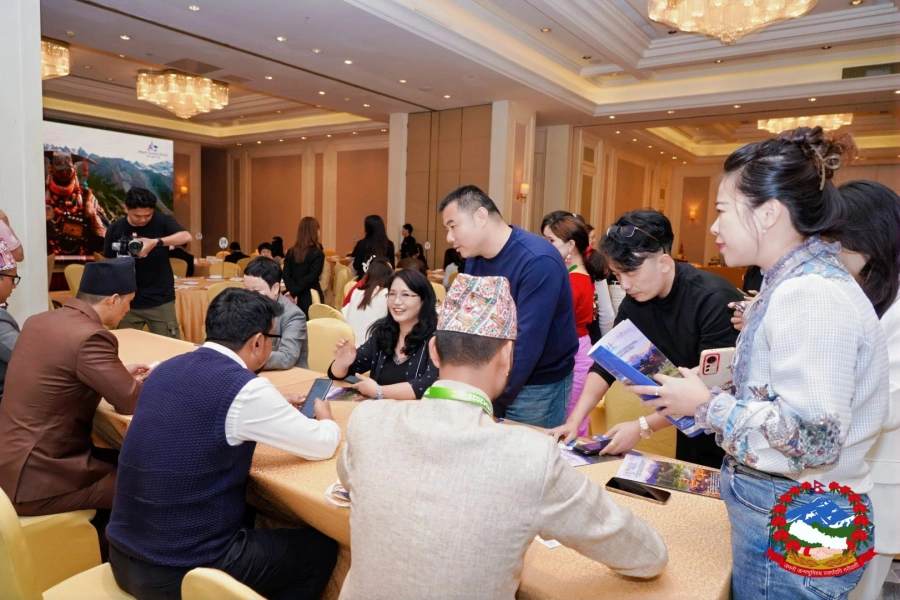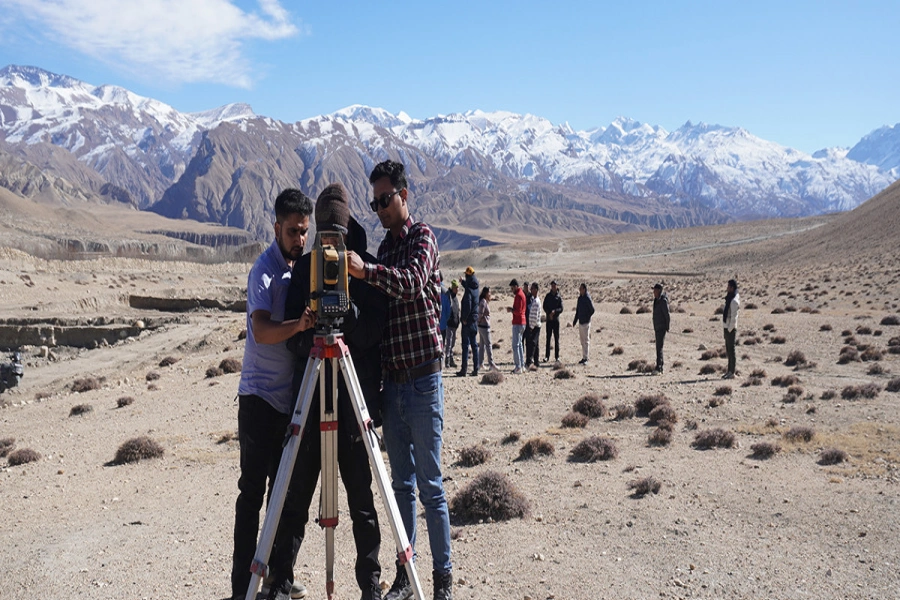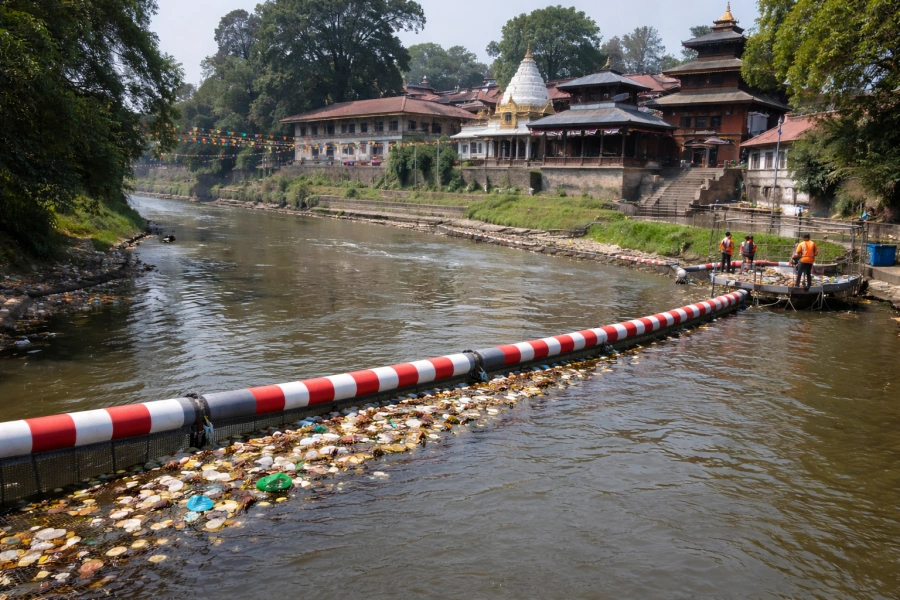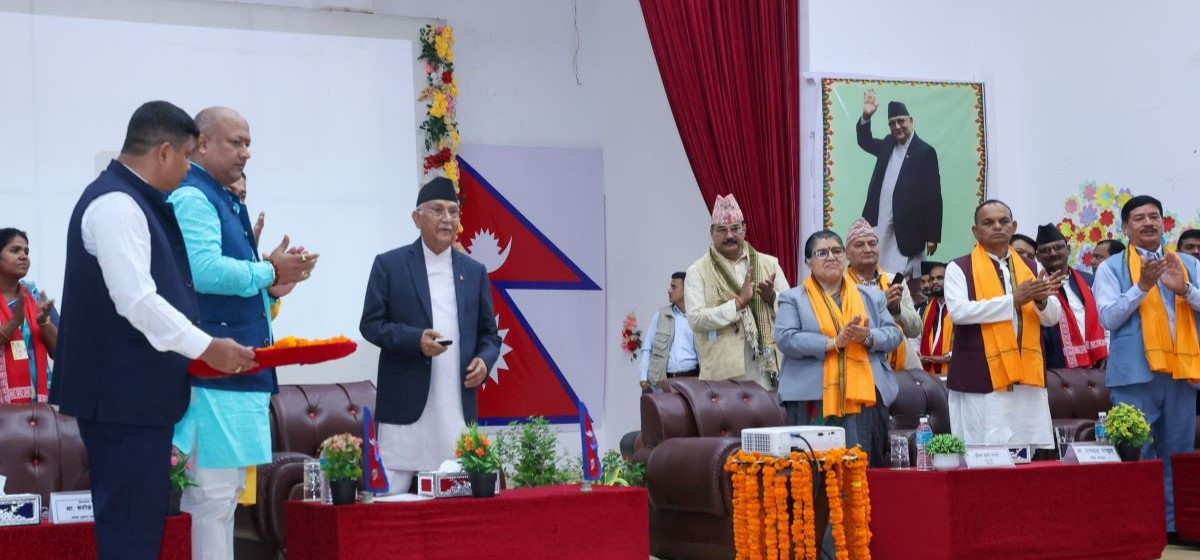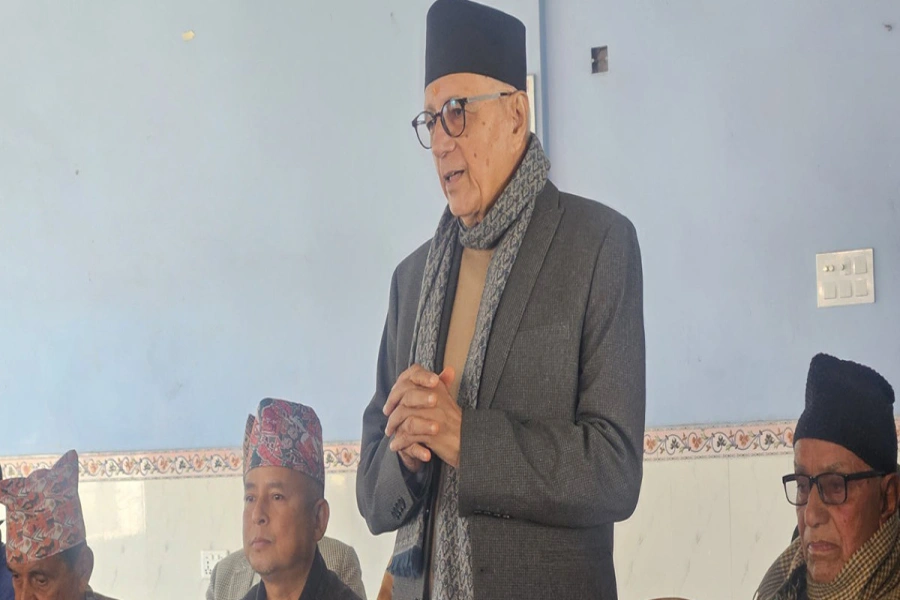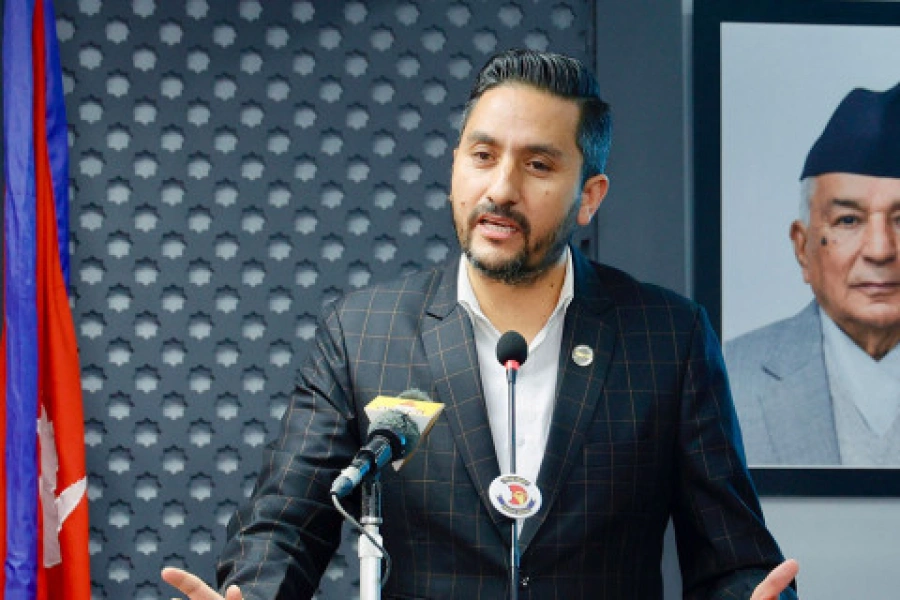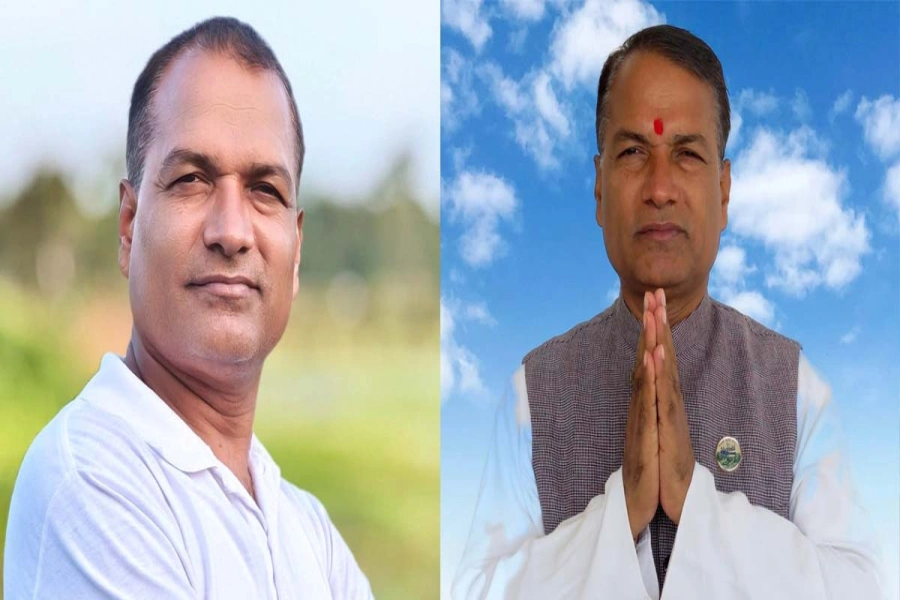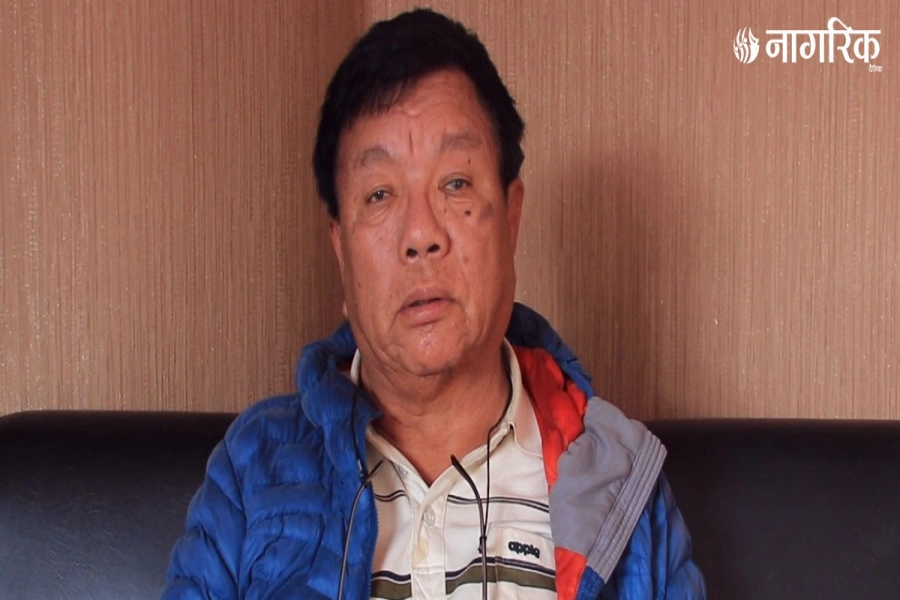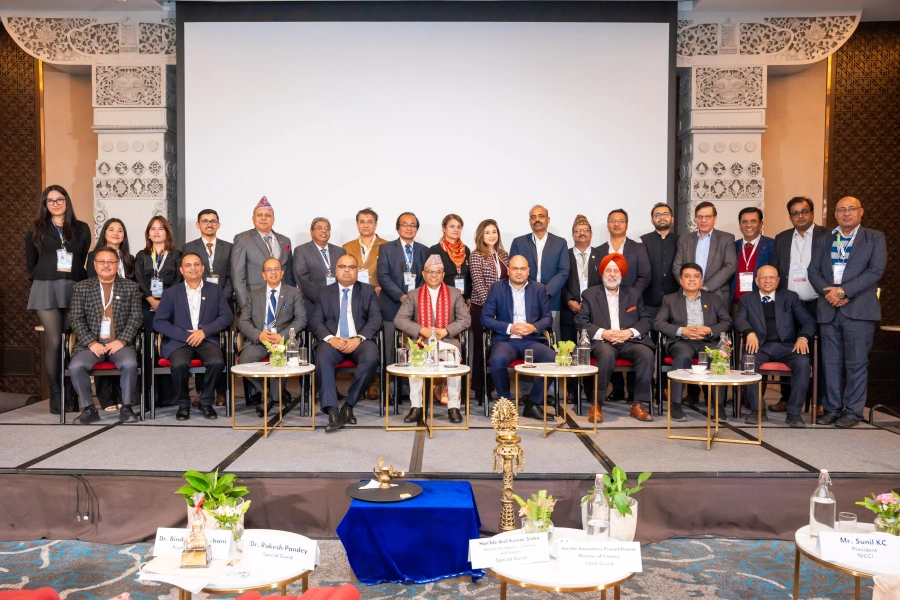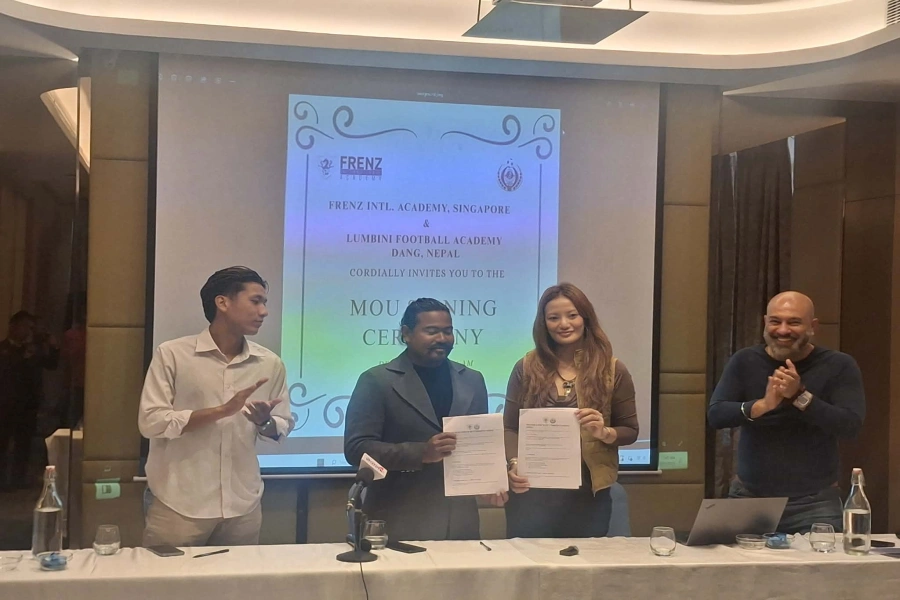KATHMANDU, June 19: More than 11,000 residents in the Sarlahi and Siraha districts of Madhesh province now have access to clean drinking water, following the successful implementation of seven Solar Drinking Water projects. These projects, supported by the Government of Japan, the Alternative Energy Promotion Centre (AEPC), and the United Nations Development Programme (UNDP), have installed solar pumps with a combined capacity of 186 kWp.
As part of this initiative, the Government of Japan and the UNDP recently handed over one of the seven projects, the 9 kWp Kothi Khola Solar Drinking Water Project, to the Atrauli User's Committee in Ward 1 of Harion Municipality, Sarlahi district. This project benefits over 260 residents, providing them with clean drinking water and irrigation facilities for modern agricultural practices such as drip irrigation for polyhouse farming.
During the handover event, Takahiro Tamura, Charge d'Affaires ad interim of Japan to Nepal, expressed his congratulations to AEPC, UNDP, District Water Supply and Sewage Office, Hariwan Municipality, and the people of Atrauli. He said, "I hope that this project will enhance the quality of life and provide sustainable access to clean drinking water. The team has also provided training to the local community, and I hope it will support the sustainable operation of the project." He further emphasized that the project will strengthen the relationship between Japan and Nepal while fostering friendship between the two countries' people.
Water, water everywhere but no water to drink!

Mayor Ramesh Budhathoki of Hariwan Municipality highlighted the need to replicate this model for promoting the sustainable use of water resources through renewable energy-based water pumping. He assured the local government's commitment to maintaining the solar-powered drinking system.
Vijaya Singh, Assistant Resident Representative of UNDP, emphasized the project's contribution to achieving the goals of Nepal's Nationally Determined Contribution. He stated, "It was not possible to provide access to drinking water to the community alone. The initiative was led by Hariwan Municipality and DWSSSO, and when there were issues with the quality and reliability of the grid, AEPC, UNDP, and the Government of Japan came together to implement the solar pumping system, enabling locals to access drinking water."
Narayan Prasad Adhikari, Director of AEPC, highlighted the importance of reaching renewable energy beyond areas without access to the national grid. He stated, "With this example from Atrauli, we should learn that renewable energy should be extended to places where it is needed, promoting sustainable energy sources."
Prior to these solar-powered drinking water projects, the Chure hill regions of Nepal faced challenges in accessing clean water due to deforestation, haphazard development and the impacts of climate change.
In addition to the solar-powered drinking water system, solar PV backup systems were installed in 11 health facilities and two schools in Sarlahi district, ensuring uninterrupted electricity supply for critical medical equipment and educational resources. Moreover, 266 women and men have received training on solar PV technologies and institutional building, ensuring the long-term sustainability of the projects beyond their initial phases.
This project is part of the Japan Supplementary Budget-funded initiative, "Leveraging NDCs to Achieve Net-zero Emissions and Climate Resilient Development in Response to Climate Emergency." Its objective is to improve residents' access to modern energy services through solar energy solutions, micro hydropower plants, agroforestry, and waste management. In addition to the solar drinking water projects, the initiative has also rehabilitated 14 MHPs, generating 1,378 kW of power for 67,000 people in Karnali and Sudurpaschim provinces. It has supported job creation and the adoption of electric cookstoves, along with land restoration and improved hospital waste management.
The Climate Promise program, in collaboration with various partners, supports 120 countries, including 40 least developed countries, 28 small island developing states, and 14 high emitters, in enhancing their Nationally Determined Contributions under the Paris Agreement. It is the largest offer of support in the world to enhance climate pledges.




